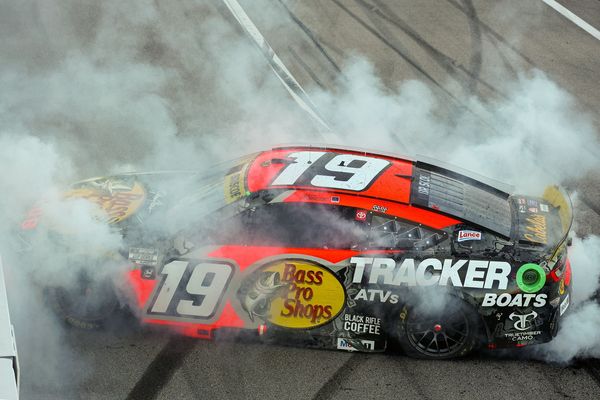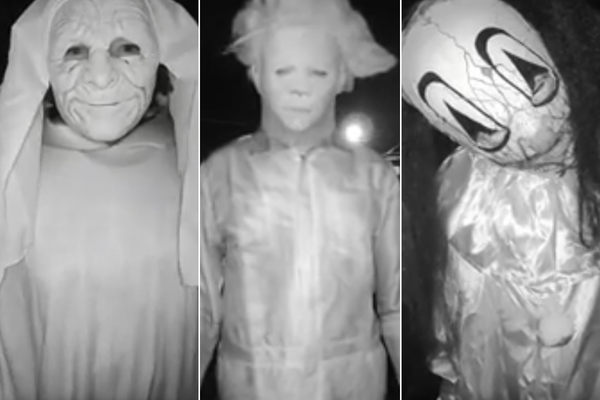
For corporate Hollywood, there’s a new buzzword in town: pre-awareness – or maybe it’s just the newest, buzziest version of the oldest idea in movie storytelling. Toy manufacturer Mattel, while preparing for the launch of its forthcoming Barbie movie, is trying to reinvent a further 45 of its toy products as screen ideas: the franchise seedcorn of intellectual property.
Inspired by the success of the lumberingly stupid but lucrative Transformers movies, Mattel’s toy stable, like Hot Wheels, He-Man and Polly Pocket, will be the basis of future movies, or streaming, or maybe even theatre. What Marvel did with its superheroes, Mattel is planning to do with its toys. And the point is that that the toys’ customer base already know what to expect.
Family movies about toys are attractive to studios because you don’t have to work hard to tell a story afresh. Audiences don’t have the workload of not knowing, as the film begins, what is going on. Depressing, yes. It could well be an apocalypse of dumb – a further lurch away from the decent Hollywood tradition of making midmarket dramas about grownup people with grownup actors with well-made scripts.
Hollywood has, of course, long traded on pre-awareness. The movies have always adapted classic novels and plays, letting the publishing and theatre industries take the commercial risk. And quite apart from remakes and sequels, Hollywood has a pre-awareness based on genre: if you offer the public a western, for instance, they already know what to expect (and maybe for our generation, superhero films are the new westerns). The same goes for actors. Audiences knew what a John Wayne film was liable to be like, or a Jerry Lewis film or a Katharine Hepburn film or a Tom Cruise film. And for those rare directors with widespread brand recognition, like Alfred Hitchcock or Wes Anderson, people loosely knew what they would be sitting down to – but always with infinite scope for human variation and surprise.
But Mattel’s version of “pre-awareness” looks different. Movies based on toys available for decades, even more than ones based on games such as the movie surreally derived from the board game Battleship, play on a deep-seated awareness of a product, which is not a complex narrative but a very rudimentary set of ideas, a much cruder kind of pre-awareness compared to the generic or star-based forms.
Yet the real problem for Mattel is unlikely to be story but tone. The Barbie movie starring Margot Robbie as the blond doll heroine is reportedly structured around the time-honoured fish-out-of-water plotline, with Barbie transported out of her perfect toy universe into the real world. It is highly likely that this film will be experienced on two levels – a serious one for the kids, and an irony-laden one for accompanying adults, who will be slyly invited to laugh at how naff or reactionary the cherished toys of their childhood actually were, or to smile affectionately at how they were charming and empowering.
But irony can be dangerous. Self-awareness can undermine the whole illusion.
Take the Marvel franchise. Ask any adult sophisticate which is the best Marvel film, and they are likely to say Thor: Ragnarok, directed by the super-smart comedy professional Taika Waititi. Everyone loves this film because it is funny: Chris Hemsworth, playing the mighty Norse god himself, takes the mickey out of it, and himself, to just the right extent. But Marvel are very aware that not every film in the franchise can be like this. The Marvel brand as a whole is deadly serious, its fans take it seriously – and if you send it up, that could hurt the bottom line.
Then there’s James Bond, the most pre-aware franchise of all. For years, there has been talk of bringing in smart new writers to shake it up and be more funny and self-aware. Danny Boyle was (briefly) invited to take the 007 helm, but disinvited when he had his own ideas about script. Phoebe Waller-Bridge was supposed to be adding extra humour and zip. But how much did she really contribute? The 007 brand of course has little tics and quirks of humour, but it is fundamentally serious. Too much comedy and it just becomes Austin Powers.
This, I predict, is what risks jeopardising Mattel’s “extended universe”. Sheepish irony. If you are looking for ways of extrapolating a narrative from something as obviously ridiculous as Hot Wheels (and we all remember how the cars actually fell down from the track during the loop-the-loop, despite the gravity-defying stunts in the TV ads) then you will naturally be drawn to comedy, and playfulness is, after all, a natural tendency in dealing with a toy. Yet it will never quite be funny enough, and it will not match the quicksilver imaginative world which children have already brought to their much-loved games and dolls. Mattel’s pre-aware toy movies have within them the seeds of their own destruction.
Peter Bradshaw is the Guardian’s film critic







